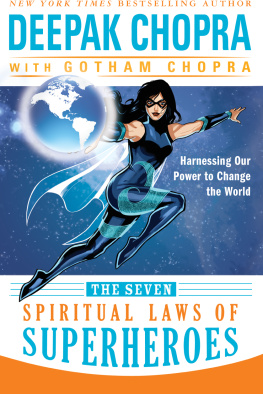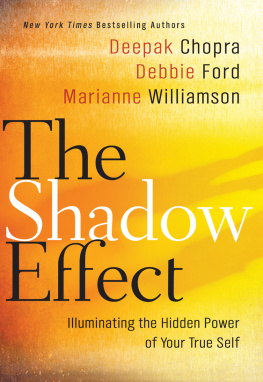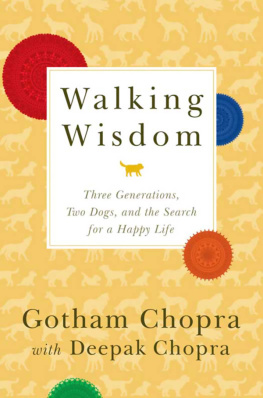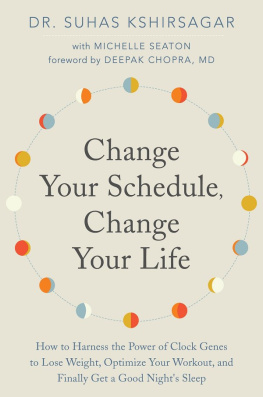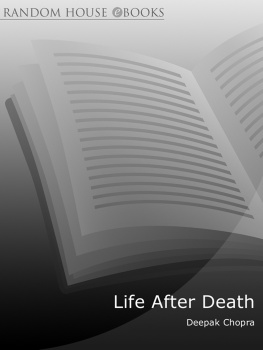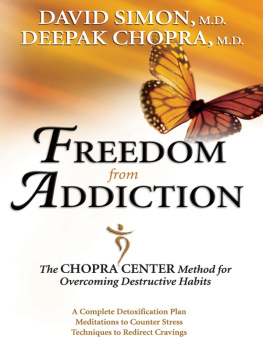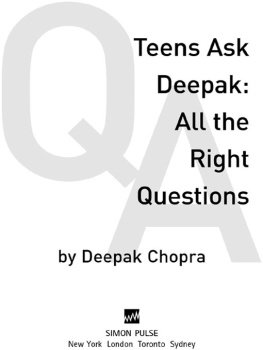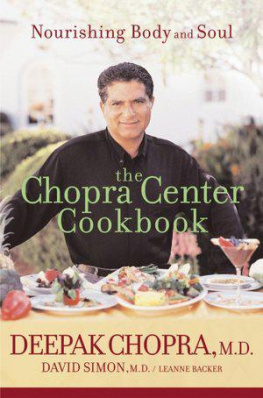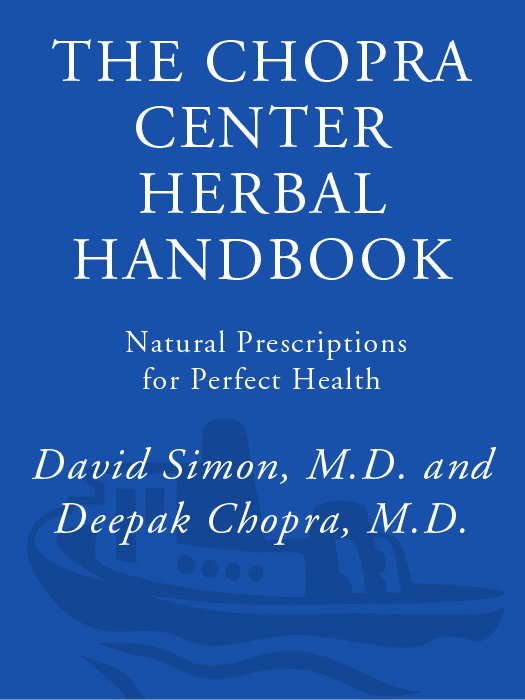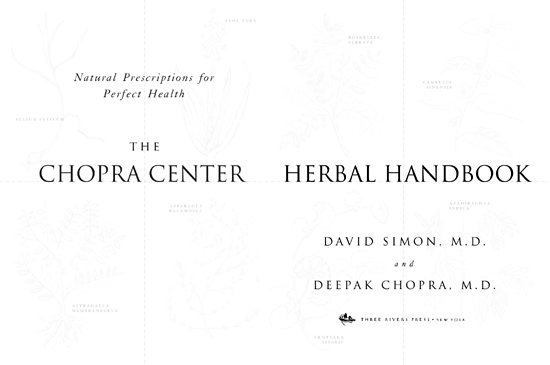Copyright 2000 by David Simon, M.D.
The information contained in this book is not intended to serve as a replacement for professional medical advice. Any use of the information contained in this book is at the discretion of the reader. The authors and the publisher disclaim any and all liability arising directly or indirectly from the use or application of any information contained in this book. A health care professional should be consulted regarding your specific situation.
All rights reserved. No part of this book may be reproduced or transmitted in any form or by any means, electronic or mechanical, including photocopying, recording, or by any information storage and retrieval system, without permission in writing from the publisher.
Published by Three Rivers Press, New York, New York.
Member of the Crown Publishing Group.
Random House, Inc. New York, Toronto, London, Sydney, Auckland
www.randomhouse.com
Three Rivers Press is a registered trademark and the Three Rivers Press colophon is a trademark of Random House, Inc.
Design by L YNNE A MFT
Library of Congress Cataloging-in-Publication Data
Simon, David, 1951
The Chopra Center herbal handbook : natural prescriptions for perfect health / by David Simon and Deepak Chopra.
Includes bibliographical references.
pbk.
1. HerbsTherapeutic useHandbooks, manuals, etc. 2. Medicine,
AyurvedicHandbooks, manuals, etc. I. Chopra, Deepak. II. Title.
RM666.H33 S555 2000
615.321dc21 00024451
eISBN: 978-0-307-82910-8
v3.1
To the staff members of the Chopra Center for
Well Being who on a daily basis devote themselves to
meeting the physical, emotional, and spiritual needs
of our guests and patients;
To the team members of MyPotential.com,
who support the vision of empowering people to live
a more fulfilling life;
and
To all loving souls on this planet who are committed
to healing themselves and the world.
ACKNOWLEDGMENTS
Wed like to acknowledge our family and friends
who have supported the birth and development of this book:
Pamela, Max, and Sara Simon;
Rita Chopra, Gautama Chopra,
Mallika Chopra Mandal, and Sumant Mandal;
Peter Guzzardi;
Muriel Nellis and Jane Roberts;
and
James Nocito, for his beautiful artwork.
WEB SITES
If you have enjoyed this book and wish to learn more
about ways to enhance your physical, emotional, and
spiritual well being, visit our new Web site:
www.MyPotential.com
For more information about programs and courses
offered through the Chopra Center for Well Being,
visit our Web site:
www.Chopra.com
CONTENTS
The Herbal Renaissance
The Lord created medicines out of the earth, and the wise do not reject them.
BOOK OF SIRACH 38:4
W e are witnessing an unprecedented resurgence in natural healing. The search for holistic approaches to enhance health is permeating every aspect of our culture and society. Why is there such an explosive interest in natural medicine? It is certainly not for lack of success from our scientific approach to illness. Major advances in physiology, biochemistry, pharmacology, and genetics have exponentially expanded our understanding of disease, and we have developed previously unimaginable new ways to diagnose and treat the afflictions of humanity. Within the last fifty years we have eradicated smallpox, minimized the risk of many life-threatening childhood diseases, performed sophisticated brain surgery, and transplanted organs. In view of these obvious successes of our modern medical system, we might imagine that the status of the institutions of medicine would be at an all-time high. And yet we know there is pervasive dissatisfaction and frustration with our health care. How can we explain this paradox?
It is the nature of life to strive continually for more evolutionary solutions to the endless challenges that arise. In this information age, every intelligent person has access to a vast body of facts and opinions on any subject of interest. People facing health concerns no longer depend solely upon their physicians for advice and information on the management of their illness. Whether or not you have a health-care background, you have unprecedented opportunities to learn about your problem. Through the Internet, books, journals, newsletters, and support groups, more and more people are formulating their own view of their illness and how they want to approach it. Patients are no longer passive and are not inclined to be as patient as they once were. There is a powerful movement of self-empowerment and consumerism in the world today that grew in part out of the sixties mindset of challenging authority. Thalidomide, DES, Fen-Phen, and other highly publicized drug recalls over the past generation have dampened our unbridled enthusiasm for consuming every new pharmaceutical product as the shortest distance between sickness and health. With expanding information on the role of diet, stress, and activity on health and disease, many people are asking these new questions of their health providers: What should I be eating to help my body heal? How can I better manage my stress? Is there a role for nutritional supplements in the treatment of my condition?
Such questions reflect a deeper one, which we hear each day at the Chopra Center for Well Being: What more can I do to be an active partner in my healing process? Unfortunately, most of our medical colleagues are ill-prepared to answer these questions, and often discourage their patients from asking them, directly or indirectly. Consequently, more people are seeking alternative sources of information. The now well-known report of Dr. David Eisenberg showed that more than two in five Americans sought out unconventional medical treatment in 1997, while other studies have put the number at closer to one in two.
What needs are being fulfilled by these unorthodox modalities? In our experience at the Chopra Center, most people have not rejected medical care; they simply want to explore other, less toxic alternatives before resorting to a potent drug or procedure; they want to be more than passive receptacles of physician-prescribed drugs; they want to go beyond compliance to active partnership. It is here that herbal medicine can make a contribution to the well-being of individuals and of our community.
According to Ayurveda, Indias ancient medical system, human beings are not merely thinking physical machines frozen in time and space. Rather, we are networks of intelligence in a universe of energy and information. The conscious energy field of the universe organizes into forms and phenomena spanning the entire range from galaxies to subatomic particles. Somewhere in between are human beings, with their physical, emotional, psychological, and spiritual layers. We are in constant and dynamic exchange with our environment through our breathing, eating, eliminating, perceptions, and interpretations. It is an illusion of our senses that our boundaries end abruptly at the surface of our skin.
Within this framework, health is more than the mere absence of a laboratory abnormality; it is the dynamic integration of environment, body, mind, and spirit. Herbal medicine offers a gentle approach to enhance this integration, particularly when the imbalance has not gone too far. Healing plants allow us to reconnect with our environment, accessing the power of nature as our ancestors have done since antiquity. Herbs can help us normalize disturbed physiological functions including digestion, elimination and sleep. They can help restore weakened immunity, settle a turbulent mind and promote detoxification and rejuvenation. Plants provide us expanded and diverse options to synthesized drugs, but they do not replace the appropriate use of pharmaceuticals.


